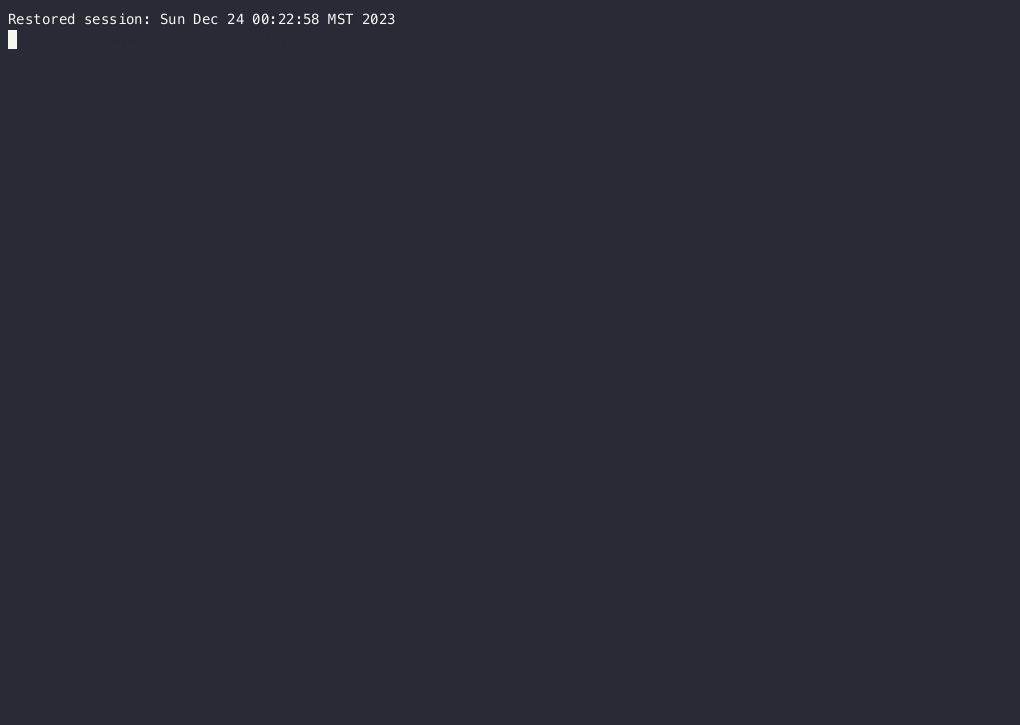ShellOracle is a pluggable terminal utility that takes a natural language description of a command and substitutes it into your terminal buffer.
Project description
ShellOracle
ShellOracle is an innovative terminal utility designed for intelligent shell command generation, bringing a new level of efficiency to your command-line interactions.
Explore our dynamic features and look forward to more exciting updates by giving us a ⭐ and a 👀
Table of Contents
Introduction
In the ever-evolving landscape of command-line interfaces, ShellOracle emerges as a game-changer. This terminal utility empowers users to effortlessly generate shell commands by simply describing their intentions. Whether you're a seasoned developer or a command-line enthusiast, ShellOracle streamlines your workflow, making complex command creation an intuitive and accessible process.
Why ShellOracle?
-
Intelligence at Your Fingertips: No need to memorize intricate shell commands. Describe your task, and let ShellOracle intelligently generate the command for you.
-
Enhanced Productivity: Say goodbye to manual command crafting. With ShellOracle, you can save time and focus on what matters by leveraging the power of natural language descriptions.
-
Versatile Integration: Whether you're working on a quick one-liner or chaining multiple commands, ShellOracle adapts to your needs. Enjoy the flexibility of Unix pipe support and command history.
-
Self-hosted Control: Take charge of your environment by running ShellOracle as a self-hosted utility. Full control means you tailor it to your preferences.
This is more than just a utility; it's a tool that transforms how you interact with the command line. With ShellOracle, the language of the shell becomes more accessible, intuitive, and efficient.
Features
Key features of ShellOracle include:
- Seamless shell command generation from written descriptions
- Command history for easy reference
- Unix pipe support for advanced command chaining
- Self-hosted for full control over your environment
- Highly configurable to adapt to your preferences
Installation
Installing ShellOracle is easy!
- First, pip install the
shelloraclepackagepython3 -m pip install shelloracle
- Next, run
shelloracle --initand follow the promptspython3 -m shelloracle --init
[!NOTE]
If you chose Ollama as your LLM provider, you will need to install it from here.
Usage
ShellOracle is designed to be used as a ZSH Line Editor widget activated by the CTRL+F keyboard shortcut.
- Press CTRL+F
- Describe your command or goal
- Press Enter
The generated command will be inserted into your shell prompt after a brief processing period.
Ollama
Before using ShellOracle with Ollama, pull the model you want to use. The default model is codellama:13b. To pull the
default model, run:
ollama pull codellama:13b
OpenAI
To use ShellOracle with the OpenAI provider, create an API key. Edit
your ~/.shelloracle/config.toml to change your provider and enter your API key.
Other ways to run ShellOracle
ShellOracle can be run as a Python module with python3 -m shelloracle or using its entrypoint shor; however,
there are a few caveats with this method:
- Ensure your
~/.local/bindirectory is added to your PATH variable for the entrypoint to work. - Running ShellOracle with this method will not automatically insert the result into your shell prompt.
Tips
- If you press CTRL+F with text in your ZLE buffer, all text left of your cursor will carry over to your ShellOracle prompt.
- UP_ARROW and DOWN_ARROW cycle through your prompt history.
- ShellOracle can be chained with other commands; try:
echo "find all the python files in my cwd" | shor
Configuration
ShellOracle's configuration is your gateway to tailoring the utility to match your preferences and requirements.
The ~/.shelloracle/config.toml file serves as the control center for customizing various aspects of ShellOracle's
behavior.
ShellOracle Settings
The [shelloracle] section in the configuration file lets you define global settings for ShellOracle:
[shelloracle]
provider = "Ollama"
Set the provider key to specify the Language Model (LLM) backend, with options currently including "Ollama" and
"OpenAI."
Provider Settings
Provider-specific configurations are handled through tags such as [provider.Ollama] or [provider.OpenAI]. Here's an
example for the Ollama provider:
[provider.Ollama]
host = "localhost"
port = 11434
model = "codellama:13b"
system_prompt = "..."
Change these options to match your desired configuration.
For OpenAI, if you opt for this provider, you'll need to provide your API key:
[provider.OpenAI]
api_key = "your-api-key-here"
model = "gpt-3.5-turbo"
system_prompt = "..."
System Requirements
Software
ShellOracle supports ZSH on macOS and Linux. Bash support is planned; however, it is not currently supported.
Hardware
For cloud providers like OpenAI, there are no specific system requirements.
If self-hosting, system requirements vary based on the model used. Refer to the Ollama model registry for more information.
Feedback
Encountered problems? File an issue. Feature requests are welcome, and contributions can be made by opening a pull request.
Project details
Release history Release notifications | RSS feed
Download files
Download the file for your platform. If you're not sure which to choose, learn more about installing packages.
Source Distribution
Built Distribution
Hashes for shelloracle-0.4.1-py3-none-any.whl
| Algorithm | Hash digest | |
|---|---|---|
| SHA256 | 0091f04206eaebec351a28d5800b8557d000fc2b0ccaec46edcd2ee5c23366df |
|
| MD5 | 6e2837b26710c6d47fe7aa368eb7c0c9 |
|
| BLAKE2b-256 | a6142e6628b03540980f7a0e25dd801d8b6a84cbc15359a2097e5800e0737981 |












